2021 American Association of Equine Practitioners Convention Coverage
Read the latest in equine health research, news, and information presented at the 67th Annual AAEP Convention.
In 2021 the American Association of Equine Practitioners’ (AAEP) annual convention returned to an in-person event after going virtual in 2020 as the COVID-19 pandemic brought most large gatherings to a halt. Equine veterinarians, researchers, vet techs, and industry businesses gathered Dec. 4-8 in Nashville, Tennessee, to attend scientific sessions, browse the tradeshow floor, and interact with colleagues face-to-face, but still socially distanced of course. We at The Horse: Your Guide To Equine Health Care attended to bring you coverage of current research and trends in equine veterinary medicine.
Section Title

Why Do Some Horses Develop Respiratory EHV-1 and Others EHM?
Researcher: Differing and possibly delayed immune responses could explain the variation and offer potential for redirecting viral effects.

Equine Coronavirus Tops COVID-19 as Horse Health Risk
Researcher: Horses can acquire the COVID-19 virus but don’t develop disease. However, equine coronavirus kills up to 9% of infected horses.

R. Equi Overtreatment Fuels Multispecies, Multidrug Resistance
Breeding farm managers want zero foal deaths, but at what greater cost?
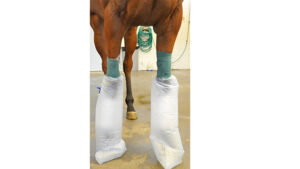
Forecast for CO2 Wound Therapy in Horses: Partly Cloudy
Equine researchers tested the treatment approach, which is commonly used in human diabetes patients.
Making the Most of Reproductive and Urogenital Ultrasound in Mares
Employ nontraditional methods to discover more about pregnancies, pathology, and problematic anatomy, all using a transrectal probe.
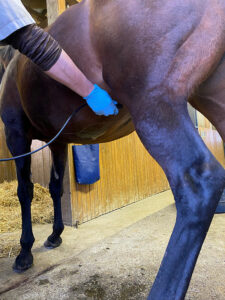
Equine Abdominal, Thoracic Ultrasonography in the Field
How veterinarians can prep horses, prep themselves, and use their ultrasound machines to do more.
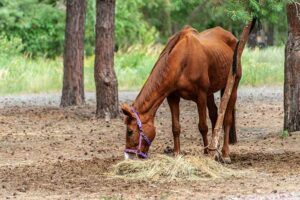
Senior Dental Problems: Consider the Whole Horse
Don’t just focus on teeth when addressing the underweight old horse; prioritize diet and lifestyle changes.

Ultrasound the First Phalange to Assess Fetal Growth
Practitioners have a new tool for assessing fetal growth/age in late gestation.

EIPH in Horses: What You Need To Know
Bleeding in the lungs is common in horses performing maximally, and researchers are learning more about why.

EHV-2 and EHV-5: More Questions Than Answers?
EHV-2 and EHV-5 behave unlike EHV-1 and -4 and respond differently to antivirals, leaving researchers eager to better understand their importance.

Use Prehabilitation To Prepare Equine Patients for Surgery
Preparation before orthopedic surgery is key to helping horses recover and maximizing their chances of return to performance.

Rethinking How We Fight Infection in Horses
Here are questions veterinarians should consider when deciding whether to treat a horse with an antibiotic.
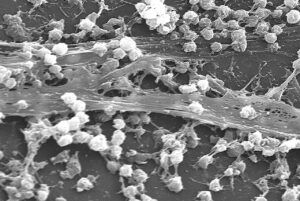
Managing Challenging Biofilms in Horse Wounds
Aggressive early treatment can help horses recover from wounds afflicted with these persistent bacterial conglomerations.

Bacteria From Horses Give Clues to Antibiotic Resistance
Researchers who study antibacterial resistance in people and across species found one equine fecal sample showed bacterial resistance to 11 different drug classes.
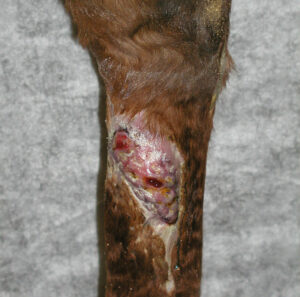
Best Practices for Successful Skin Grafts in Horses
Proper technique and keeping the graft immobile can mean a faster-healing, less expensive treatment process.
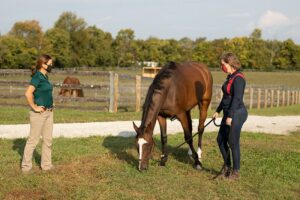
COVID’s Impacts, for Better and Worse, on the Horse World
Researchers have observed pandemic-related trends in the equine industry over the past two years.
Brought to you by:





